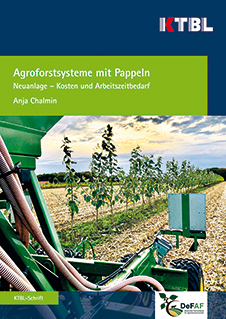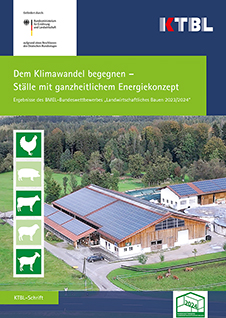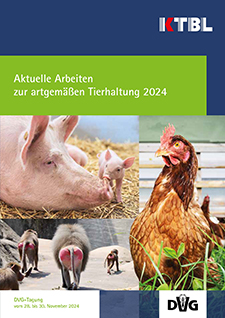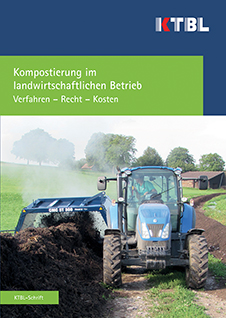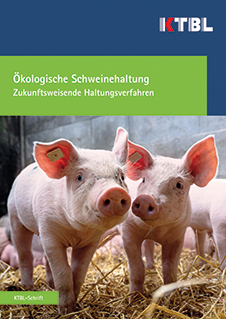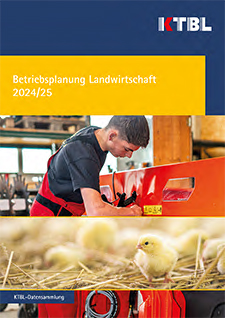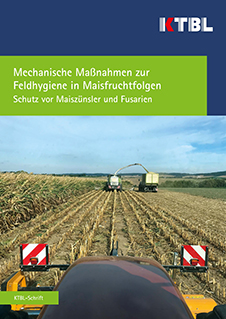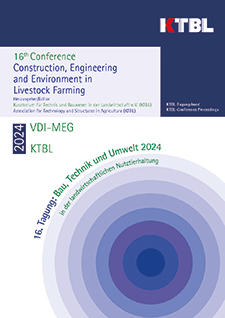KTBL/VDLUFA Proficiency Test Biogas
On this project page, you will find information about the Inter-Laboratory Comparison Biogas, which is conducted annually by the German Association for Technology and Structures in Agriculture (KTBL) and the Association of German Agricultural Analytic and Research Institutes (VDLUFA).
Background and Objective
For the design and operational optimization of biogas plants, data from fermentation tests together with information and experience from existing plants are generally used. In the past the results of the fermentation tests carried out in the laboratory to determine the gas yields were rarely comparable, since the laboratories often work with different experimental conditions, and a systematic, laboratory-wide quality improvement of the biogas laboratories in the determination of the gas yield rarely took place. This prompted KTBL together with VDLUFA in 2006 to set up a inter-laboratory comparison for gas yields from biogas substrates. This was initially carried out as part of a project funded by the Federal Ministry of Food and Agriculture (BMEL) through the Agency for Renewable Resources (FNR). Since 2011, KTBL and VDLUFA have been organizing the proficiency test biogas on their own initiative. Due to the positive response of the laboratories established in the biogas sector and the high demand for reliable biogas yield data in the industry, the inter-laboratory test has been offered on an annual basis since 2014.
The biogas inter-laboratory test plays a significant role in the quality monitoring of laboratories, as the participating laboratories have the opportunity to objectively demonstrate their performance. The actual analytical performance of a laboratory can best be tested through comparison with other laboratories. The participating laboratories all receive identical samples at the same time, which they then analyze according to the usual standard methods in their respective laboratory. On the basis of the subsequent inter-laboratory evaluation, statements can be made about the measuring accuracy and quality of the biogas laboratories. Participation in inter-laboratory tests serves the laboratory as an external quality assurance measure and the parties requesting such tests, as a confidence-building measure.
In this way, the causes for deviations in the measurement results can be identified in order to improve the measuring accuracy of the biogas laboratories. This achieves better comparability of the results of fermentation tests. With the reduction of the analytical errors and the associated improvement of the data quality and the quality of the database for KTBL Guideline Values on Biogas Yield (KTBL 2015) and the acceptance of those practical guideline values increases.
Since the beginning of the project, a KTBL working group of experts is providing professional support to the proficiency test. The findings from the first inter-laboratory tests led to the developing of a method for biogas potential measurement which was taken over by VDLUFA as the association method "Determination of Biogas and Methane Yield in Fermentation Tests" (VDLUFA 2011). This serves to simplify the implementation of VDI Guideline 4630 (VDI 2016) and thus helps to avoid sources of error in the fermentation tests. The KTBL working group is currently developing the basis for a further VDLUFA association method for determining the residual gas potential. Thus, a better comparability of the test results for the practice as well as a more consistent guidance for the laboratories should be achieved.
Framework Conditions of the Proficiency Test
The basic prerequisite for participation in the inter-laboratory test is compliance with the VDLUFA method specification "Determination of Biogas and Methane Yield in Fermentation Tests" (2011) and VDI Guideline 4630 (2016).
At least 3 samples are sent for the gas yield analysis. This includes on the one hand microcrystalline cellulose as a standard fermentation substrate. The other fermentation substrates used should cover the usual range of substrate variation in practice (e.g. corn silage, grass silage, wheat grain). The raw nutrients are usually determined in maize silage samples and the analysis of the residual gas potential is based on digestate samples from an agricultural biogas plant. For the comparison test identical sample material is sent to all laboratories; however, the amount depends on the experimental setup. The shipped sample material should be handled and analyzed according to the standard operating procedure in the laboratory. All samples must each be analyzed with at least 3 repetitions.
The number of participating laboratories, depending on the trial, ranges from 20 to 30 laboratories, located in Germany and abroad, and participating in different experimental setups. Since the beginning of the annual tests in 2014, the laboratories can individually choose from the following scope of analysis (characteristics):
- Determination of the biogas and methane potentials of three sample materials, including determination of DM, oDM, fermentation acids
- Determination of macro ingredients: crude protein, crude fiber, crude fat, raw starch, sugar, other on the basis of a substrate sample
- Determination of residual gas potential (at 20°C and 37°C), including determination of C2-C5 fatty acids.
The procedure and evaluation of the inter-laboratory comparison is anonymous and usually ends with a final meeting together with the KTBL working group. Here, the attendant laboratory representatives have the opportunity to discuss the results and, if desired, to discuss possible sources of error or problems that have arisen. This sometimes gives valuable clues for the improvement of the measuring accuracy and the test procedure in the participating laboratories.
Certificate for Successful Participation
The evaluation for the KTBL/VDLUFA inter-laboratory test biogas is carried out according to DIN 5725 "Accuracy (Accuracy and Precision) of Measurement Methods and Measurement Results" (1997, 2002), DIN 38402-45 "Standard Method for the Examination of Water, Waste Water and Sludge - Part 45: Interlaboratory Tests on the Suitability Testing of Laboratories "(2014) and the Pocklington Report (1991). The participating laboratories receive a quality seal on their successful participation, which, however, only relates to the correct determination of the biogas yields (analysis scope of fermentation test). The parameters residual gas potential and macro ingredientsremain unaffected. The quality seal is issued per trial,
- all main samples have been analyzed,
- the standard normal distribution (z-value) for 75 % of the samples is a maximum of ± 2
- the target methane yield of the cellulose, according to the VDLUFA method, has to be determined
- the methane yield determined for the maize silage sample is ± 10 % of the mean value of all laboratories in the respective run, and
- the internal laboratory scatter in the respective run for cellulose is a maximum of 6 %.
Schedule
- September: Sending the invitation to the round robin test to the laboratories
- Beginning of October: Registration deadline for the laboratories
- Mid-October: Dispatch of the sample material to the laboratories
- End of October to February: Analysis period or submission of the analysis data from the laboratories
- March: Transmission of the analysis of the round robin test to the laboratories
- May: despatch of the certificate
Work group
A project-accompanying KTBL work group with experts from research and science has been providing advice since the start of the proficiency tests.
Current members:
- Dr. Manfred Bischoff, LUFA North-West
- Dr. Christiane Herrmann, Leibniz Institute of Agricultural Engineering and Bioeconomics
- Dr. Fabian Jacobi, Hessian State Laboratory
- Dr. Hans Oechsner (Chairman), University of Hohenheim
- Dr.-Ing. Jürgen Pröter, German Biomass Research Centre
- Dr. Peter Tillmann, VDLUFA Quality Assurance NIRS GmbH
Project partner: VDLUFA, KTBL
Contacts
Association for Technology and Structures in Agriculture (KTBL)
Mark Paterson; Tel.: +49 6151 7001-234
VDLUFA Quality Assurance NIRS GmbH
Dr. Peter Tillmann, Tel.: +49 561 9796750
You might also be interested in this
References and Publications
Homepage "Biogas Ringversuch"

